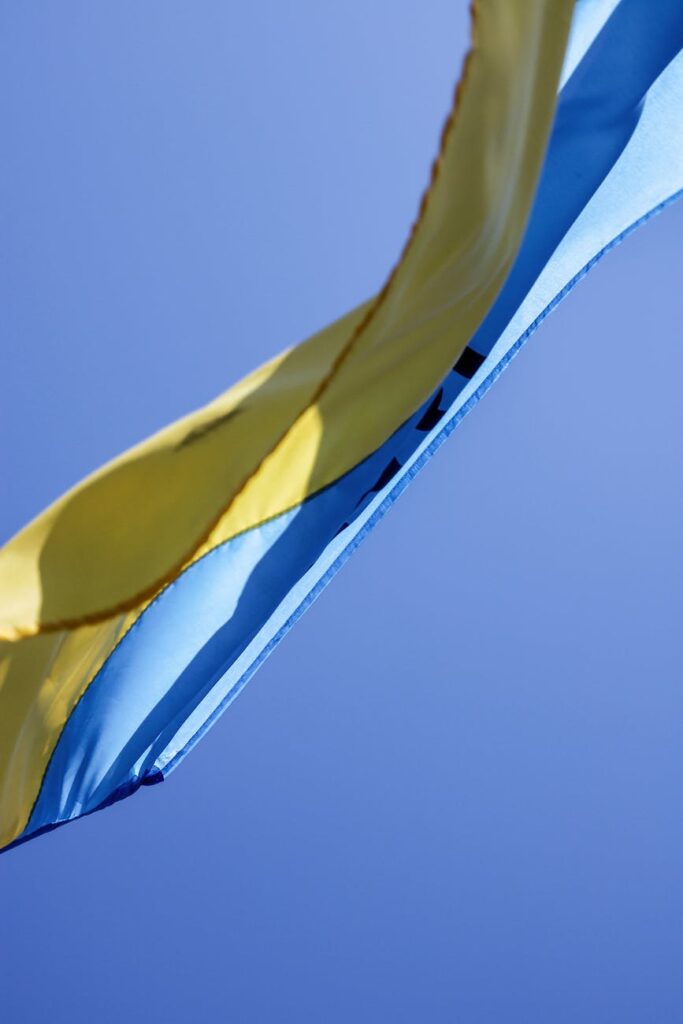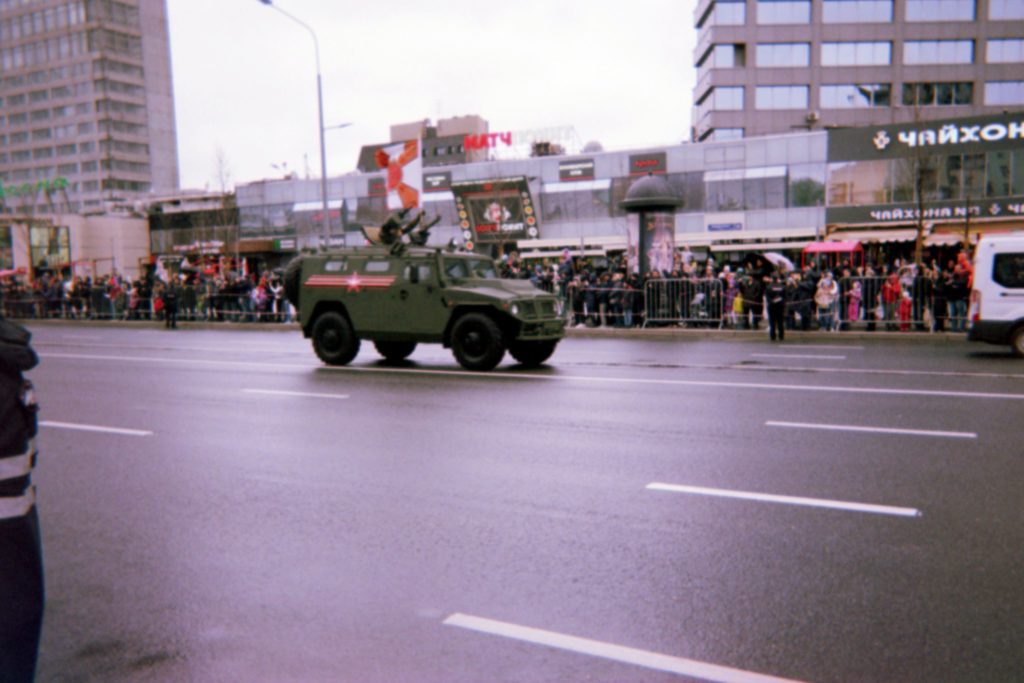
By Prof. Geoffrey Roberts, Pearls and Irritations, 7/6/23
The aftermath of Ukraine’s ailing counter-offensive may be the country’s last chance to avert the utter destruction of a senseless forever war.
So far, Ukraine’s month-long ‘counter-offensive’ has been a very costly failure. Attacks on Russian forces in the southern province of Zaporozhe have yet to achieve any significant strategic success, and the same is true all along the line of contact. Some of Kiev’s most fervent supporters are beginning to doubt Ukraine’s armed forces have the firepower to penetrate Russia’s multi-layered defensive belt, which bristles with minefields, tank traps, trenches and concrete bunkers.
‘Prepare for Ukraine’s counter-offensive to falter’, Colonel Richard Kemp warns conservative readers of the UK’s Daily Telegraph.
Expectations that Russia’s supposedly demoralised soldiers would cut and run at the first opportunity have been dashed, while Russian artillery and air forces have cut a destructive swathe through Ukraine’s western-supplied tanks and infantry fighting vehicles.
A stronger attack by the Ukrainians might gain some traction but the cost will be brutal and any breakthrough difficult to sustain. According to US Staff Chief, General Mark Milley, the Ukrainian offensive is “going to be difficult. It’s going to be very long, and it’s going to be very, very bloody.”
Irrespective of the final outcome of current battles, the war of attrition with Russia will go on, and that is a fight Ukraine cannot hope to win. No amount of western military aid can tilt the balance of power in Ukraine’s favour – Russia has too many troops, tanks, planes and guns. Russia’s defence industry is out-performing western arms manufacturers and President Vladimir Putin is well able to add to the hundreds of thousands of soldiers he has already mobilised and deployed.
Domestically, Putin is riding high on popular support for Russia’s ‘existential’ war with Ukraine and its NATO allies. It remains to be seen if Yevgeny Prigozhin’s failed Wagner revolt will dent his power and popularity but the omens are not good for those who long for a collapse of Putin’s regime.
As Strana.UA – the Ukrainian daily newspaper that provides outstandingly well-informed and impartial coverage of the war – has commented, Prigozhin’s mutiny failed because of a complete lack of support in the country’s armed forces, among Russia’s elites and in Russian society. Having quelled the rebellion without a bloodbath, exiled Prigozhin to Belarus and dismantled the Wagner PMC, President Putin is looking stronger than ever.
As to the impact of Wagner’s demise on Russia’s war effort, Ukraine’s Commander-Chief, Genera Valerii Zaluzhnyi, was adamant in a recent Washington Post interview that its withdrawal from the frontline had made no difference whatsoever. In that same interview he complained bitterly that Ukraine had been forced to undertake an offensive without air cover and with grossly insufficient artillery support – something that neither NATO nor Russia would dream of doing.
Former Ukrainian Presidential advisor, Oleksii Arestovych, was even more forthright, claiming that Ukrainians are shedding their blood for the sake of future western negotiations with Russia.
Ukraine’s only real hope of victory is that NATO will escalate its proxy war on Russia into a full-scale engagement. But that could result in an all-out NATO-Russia war that would quickly cross the threshold of nuclear weapons’ use. Thankfully, even hardline anti-Russia states such as Poland and the Baltics have recoiled from such a drastic step, for the moment anyway.
Ukraine’s leaders and people are determined to fight on come what may. But faced with a prolonged, devastating and losing war of attrition their fortitude may begin to falter.
As Strana.UA reports, within Ukraine there are many who believe the country should cut its losses, hold its nose and do a peace deal with Russia – and their numbers and voices can only grow as hopes of recapturing lost territories continue to fade. As Ukraine’s ‘peaceniks’ also point out, those same territories contain millions of Ukrainians who want to be part of Russia. Re-capturing these territories from Russia will perforce be a war of conquest as well as liberation.
Ukraine’s ability to resist Russia’s onslaught is almost wholly dependent on Western support. As Putin pointed out in a recent Q&A with Russian war correspondents, if the West wants a ceasefire and a peace deal all it has to do is to stop supplying weapons to Ukraine, whose leaders would then quickly seek an armistice.
Remarkably, Putin remains open to diplomacy and a negotiated end to the war “as I have said a thousand times”, he told the same gathering, “we have never refused to participate in any talks that may lead to a peace settlement.”
Putin then spoke about the draft peace agreement initialled by Russia and Ukraine during the abortive Istanbul ceasefire negotiations of spring last year, pointing out this detailed document dealt thoroughly with Ukraine’s security issues but Kiev, he claimed, just “threw it away”.
A few days later, at a meeting with an African leaders’ peace delegation, Putin reiterated that Russia had never refused talks with the Ukrainians. He even showed them a copy of the ‘Treaty on Permanent Neutrality and Guarantees of Security of Ukraine’ that had been provisionally agreed in Istanbul
The details of that draft agreement remain opaque but the basic quid pro quo was that Ukraine would neutralise and disarm and acquiesce in territorial losses to Russia in return for guarantees about its future independence, sovereignty and security.
After more than 15 months of a war that has cost Russia dearly, Putin is sure to drive a harder bargain if those talks are resumed, above all he will want continuing control not just of Crimea but of the four territories formally incorporated by Russia last autumn – Donetsk, Kherson, Lugansk and Zaporozhe.
Such a deal would be a very bitter pill for Ukrainians to swallow but the longer the war goes on, the more likely is further Russian expansion into southern and eastern Ukraine, including capture of the crucial Black Sea city-port of Odessa and Ukraine’s second largest city, Kharkov – both of which contain large numbers of Russian-speaking Ukrainians.
As Putin also told the assembled journalists and military bloggers, while Russia must treat Ukrainians with respect, not least those who wish to live in a separate, independent state, their preferences cannot be at the expense of Russia’s security. Under no circumstances will Putin permit Ukraine to remain a pro-Western ‘anti-Russia’, especially not in what he claimed were Russia’s ‘historical lands’ – territories that Lenin and the Bolsheviks transferred to the then Ukrainian Soviet Socialist Republic in 1922.
According to Putin’s definition, these historical lands include the Black Sea coast as well as the Kharkov area – a clear warning of further radicalisation of his territorial demands should the war continue for much longer.
Ominously, Putin warned that the Russian army could ‘go back’ to Kiev if the military situation so demanded, though a renewed assault on the Ukrainian capital would require a further round of mobilisation to augment his existing force of 700,000-800,000 troops (only half of which are currently deployed against Ukraine).
But can Putin be trusted to keep any peace deal, even one that capitulated to his main demands?
Trust is a problem that cuts both ways. Putin never tires of repeating that for years he strove for implementation of the Minsk agreements that would have returned rebel Donetsk and Lugansk to Ukrainian sovereignty on the basis of a regional autonomy that would protect the interests of the two territories’ pro-Russia population. Now he has to endure the boasting of ex-President Francois Hollande and ex-Chancellor Angela Merkel, that for France and Germany – the agreements’ Western underwriters – Minsk was merely a device to buy time for Ukraine to build-up its military power.
To paraphrase former US President, Ronald Reagan, you make peace with your enemies, not your friends. You trust they will stick to their agreements but remain vigilant and verify that they do so.
The Russia-Ukraine war could have been prevented by implementation of the Minsk agreements. It could have been curtailed by successful conclusion of the Istanbul peace talks.
The aftermath of Ukraine’s ailing counter-offensive may be the country’s last chance to avert the utter destruction of a senseless forever war.


